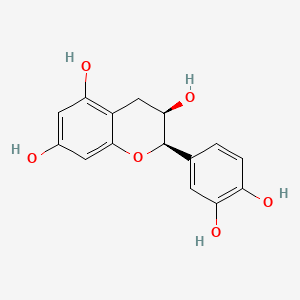| Authors | Title | Published | Journal | PubMed Link |
|---|---|---|---|---|
| Fan Y et al. | Oxidative stability and in vitro digestion of menhaden oil emulsions with whey protein: Effects of EGCG conjugation and interfacial cross-linking. | 2018 | Food Chem | pmid:29884373 |
| Yang Y et al. | SAXS characterization of the interactions among digested food compounds and the anti-oxidant and anti-inflammatory activities of the formed nanocomplexes. | 2018 | Food Funct | pmid:29873345 |
| Zhan XL et al. | Epigallocatechin gallate protects against homocysteine-induced vascular smooth muscle cell proliferation. | 2018 | Mol. Cell. Biochem. | pmid:28871467 |
| Hung WL et al. | Quantification of ascorbyl adducts of epigallocatechin gallate and gallocatechin gallate in bottled tea beverages. | 2018 | Food Chem | pmid:29739590 |
| Jeż M et al. | The impact of high pressure processing on the phenolic profile, hydrophilic antioxidant and reducing capacity of purée obtained from commercial tomato varieties. | 2018 | Food Chem | pmid:29739583 |
| Wang L and Tian X | Epigallocatechin-3-Gallate Protects against Homocysteine-Induced Brain Damage in Rats. | 2018 | Planta Med. | pmid:28666294 |
| Chen K et al. | Epigallocatechingallate attenuates myocardial injury in a mouse model of heart failure through TGF‑β1/Smad3 signaling pathway. | 2018 | Mol Med Rep | pmid:29620209 |
| Du X et al. | Impact of epigallocatechin‑3‑gallate on expression of nuclear factor erythroid 2‑related factor 2 and γ‑glutamyl cysteine synthetase genes in oxidative stress‑induced mouse renal tubular epithelial cells. | 2018 | Mol Med Rep | pmid:29620178 |
| Jing X et al. | The involvement of Nrf2 antioxidant signalling pathway in the protection of monocrotaline-induced hepatic sinusoidal obstruction syndrome in rats by (+)-catechin hydrate. | 2018 | Free Radic. Res. | pmid:29458270 |
| Wang YL et al. | Effects of fluoride and epigallocatechin gallate on soft-drink-induced dental erosion of enamel and root dentin. | 2018 | J. Formos. Med. Assoc. | pmid:29449065 |
| Zhang Y et al. | Identification of key genes involved in catechin metabolism in tea seedlings based on transcriptomic and HPLC analysis. | 2018 | Plant Physiol. Biochem. | pmid:30399544 |
| Enkhbat T et al. | Epigallocatechin-3-gallate Enhances Radiation Sensitivity in Colorectal Cancer Cells Through Nrf2 Activation and Autophagy. | 2018 | Anticancer Res. | pmid:30396944 |
| Zhang S et al. | Novel Theaflavin-Type Chlorogenic Acid Derivatives Identified in Black Tea. | 2018 | J. Agric. Food Chem. | pmid:29534564 |
| Ha T et al. | Structural Modification of (-)-Epigallocatechin Gallate (EGCG) Shows Significant Enhancement in Mitochondrial Biogenesis. | 2018 | J. Agric. Food Chem. | pmid:29514455 |
| Zeng J et al. | The Effect of Ultrasound, Oxygen and Sunlight on the Stability of (-)-Epigallocatechin Gallate. | 2018 | Molecules | pmid:30231585 |
| Ide K et al. | Effects of Tea Catechins on Alzheimer's Disease: Recent Updates and Perspectives. | 2018 | Molecules | pmid:30223480 |
| Luo L et al. | Protective Effect of Grape Seed Procyanidins against H O -Induced Oxidative Stress in PC-12 Neuroblastoma Cells: Structure-Activity Relationships. | 2018 | J. Food Sci. | pmid:30221772 |
| Moradzadeh M et al. | Epigallocatechin-3-gallate enhances differentiation of acute promyelocytic leukemia cells via inhibition of PML-RARα and HDAC1. | 2018 | Phytother Res | pmid:29193405 |
| Tang Y et al. | Polyphenols Derived from Lychee Seed Suppress Aβ (1-42)-Induced Neuroinflammation. | 2018 | Int J Mol Sci | pmid:30036972 |
| Carry E et al. | Targeted analysis of microbial-generated phenolic acid metabolites derived from grape flavanols by gas chromatography-triple quadrupole mass spectrometry. | 2018 | J Pharm Biomed Anal | pmid:30032004 |
(-)-Epicatechin
(-)-Epicatechin is a lipid of Polyketides (PK) class.
